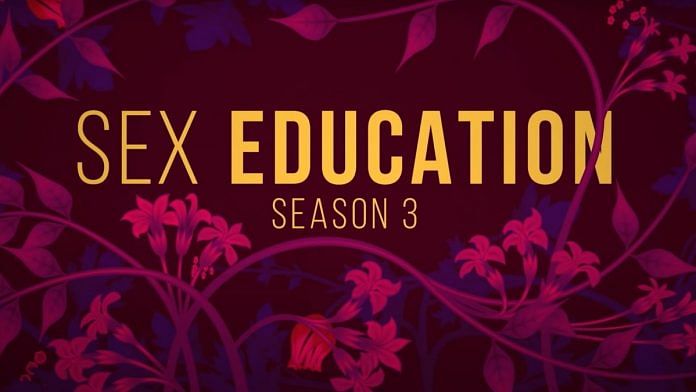Believe it or not, Netflix’s teen comedy-drama series Sex Education is actually one that teaches something that India’s prudish society doesn’t; and will not, at least for the next few generations. At least until then, we have shows like these that enlighten young urban people on issues of chlamydia, condoms, desire, homosexuality, rape and harassment, and advise them against going to peers and porn for tips.
When was the last time you actually went into a class where a trained professional taught you about safe-sex practices in high school? Never. And things haven’t changed much (FYI, I completed school just eight years ago).
Young, non-adult millennials in the English countryside appear to be decades ahead, especially when it comes to sex. Parents who understand millennials are also quite absent from our society, still stewing in the sati-savitri mentality of the 1900s.
So Netflix’s Sex Education is the closest we’ll get to sex education in India for now.
Also Read: Sex education is not family planning. That’s why we built a tool for Indian teachers first
Conversations on sex
Formal conversations about sex make Indians uncomfortable. Even in school, where we are supposed to be educated about being good, responsible adults, sex/sexual health is a chapter best not taught.
I remember when I was in sixth grade, all girls were asked to report to the auditorium and the doors were shut. They came back holding a package wrapped in a black plastic cover. Nobody uttered even a single word. I only got to know that it was a sanitary napkin when my sister told me after attending the same lecture a year later. Most boys in my class didn’t have a clue what the ads of sanitary pads Whisper or Stayfree, were about. One of them even thought that it was a women’s diaper!
In tenth grade, we had a lesson about adolescent growth, and a bit here and there about hormones, but again, no talk about sex or consent or safety whatsoever.
When our biology teacher was teaching contraceptives, she explained the ‘tougher’ parts — like the Copper-T, an intra-uterine contraceptive — but when it came to using condoms, she said, “You can read this section by yourself and it’s not that difficult”. When I asked why we need contraceptives, my teacher, quite furiously, said, “What a stupid question”. I mustered up enough courage to follow up with: “Why do we need reproductive exercise if we don’t want babies?” She chuckled and said, “Well if you can — that would be great.” That was it. There was no conversation about orgasm, feelings or anything beyond ‘reproduction’.
Also Read: There’s only one way to tackle India’s sexual violence epidemic – sex education
Where are we going wrong?
It’s not that there was no way out for us, there were written materials beyond textbooks that could educate us — but nobody was interested. I remember boys hiding in the school restroom to read Grihshobha, a Hindi women’s magazine, to see the erotic pictures of women, but I was more interested in reading the part on women’s sex problems. It is there that I read about how ‘size doesn’t matter’, what’s an ‘orgasm’, and why many Indian women don’t experience it.
My first formal sex education took place when I was 19, in a clinic where I went to get tested for sexually transmitted infections. It is there that I was educated on how to use a condom and have safer, enjoyable sex without fear.
Speaking to parents was completely prohibited. Remember how we switched television channels every time there was a kissing scene in a Hollywood film? How will a teen ever speak about these things with so much stigma instilled in them right from childhood?
What I draw from the Netflix series is that an Indian millennial (X, Y and Z) is an outlier to the modern world, they still fear conversation about sex. Topics about homosexuality, intersexuality, and body identification — which are so normal in the show — are still taboo in non-metropolitan India. We grow up being complicit in homophobia, transphobia, mocking children who are ‘different’ and do not find enough people to talk to about sex because of the fear of being judged. Our next generation will continue to feel the same if sex education doesn’t reach us on time. Do you know sex education reduces the chances of teen pregnancy and STDs?
It’s great that Netflix is accessible, you pay and play, but this will be limited to teens in urban and economically well-off sections, studying in private English schools. For the rest of our millions, sex will not be a matter of ‘education’ unless Ekta Kapoor tries to sensationalise it in her series, Gandi Baat, popular among Hindi speakers using affordable AltBalaji.
Views are personal.



